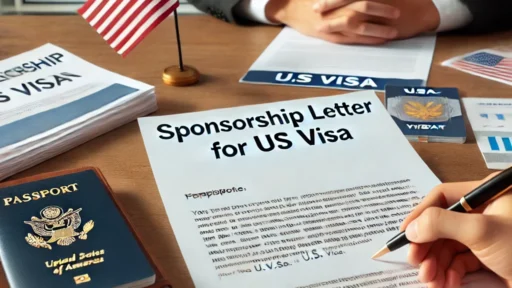Immigration is overwhelming, especially with the addition of the I-751 petition. This very important form, filed to remove conditions on permanent residency, often requires supplemental documents showing the validity of a marriage. To support this application, one very good method is to use affidavits from close friends and family members who can confirm the reality of the relationship.
A sample I-751 affidavit is a valuable resource for creating compelling statements of facts. The samples give the overall structure and the necessary points to cover, thus helping people communicate their experiences and observations more easily. Knowing how to write an efficient affidavit can increase the chances of a successful petition and may reduce part of the tension a case carries.
Overview of I-751 Affidavit
The I-751 affidavits are crucial in backing your application on the permanent resident status that eliminates the conditions. Typically, such affidavits are the firsthand witnesses to the fact that the marital relationship is pure and even more so when they coincide with the claims outlined in the I-751 petition. These could be prepared by friends, family members, or others who can attest to the validity of the marriage.
The affidavit must include some requirements of an online notary. The affiant must include his relationship to the parties in the name, address, and description required. The affiants are to set forth specific instances that confirm their knowledge about the relationship of the couple, for example, shared experiences or observations over time. More personal anecdotes would make the affidavit more relatable.
Affidavits should be signed and dated to make them bear some weight as legal documents. Each affidavit should be clear and focused, never general. They should contain specific examples of how the couple has lived together. If the affidavits can be filled with this type of information, they will help strengthen the petition by providing proof to help substantiate the relationship to immigration.
Importance of I-751 Affidavit Sample
I-751 affidavit samples encourage the U.S. immigration service to process the migration by being an important source of evidence that supports the conjugal partners’ claim of a bona fide marriage. These samples guide individuals in crafting affidavits that hold legal significance and enhance the chances of petition approval.
Legal Context
The I-751 petition requires proof that the marriage is genuine and not a sham. Affidavits contribute significantly to this evidence. In submission cases, they serve as credible testimonials to affirm the relationship through third-party perspectives. When the USCIS examines the evidence, which will be cited in the request, they are expected to follow the rules for the presentation and the content of the document. So, the affidavit, as a proof of a statement, should contain the full name of the affiant, the signature of the affiant, and a thorough statement of their being conjoined with the couple for the purpose they claim to be. If the parameters mentioned above are maintained, it will help the couple with their legal standing when reviewed.
Practical Use
Sample samples of I-751 affidavits are outlines that make creating a personalized affidavit easier. To put it another way, one can consult the samples to determine the most effective format and wording the USCIS seeks. Real-life experiences, samples, and details could help the affidavit sound convincing as it talks about how both of them loved consented to living together. Let’s say one part of those kinds of information was evidence of family gatherings, vacations, or shared financial obligations, which gave the impression that the couple had common experiences. Through the use of sample affidavits, people are able to create a vivid picture which they may present to the immigration officers and thus, may convince them of their petitions’ strength.
Components of an Effective I-751 Affidavit
An impactful I-751 affidavit is comprised of clear-cut factors that help in making it more valid and useful. Personal declaration and the accompanying paperwork, therefore, being the mainstay of these affidavits, offer a convicing proof of the fact.
Personal Testimonies
Personal testimonies are a critical element in demonstrating the true nature of a marital relationship. Every sworn statement has to detail the declarant’s version of how the meetings with the couple took place. Key elements to include are:
- Affiant’s full name: You should clearly say the name of the affiant for the sake of quick reference.
- Affiant’s relationship to the couple: The affiant can be the cousin of one or both individuals applying for a marriage green card hence the person knowledgeable about the marriage details. If so, the following part should be kept in the text: “Explain the affiant’s relationship to the couple and the duration of their relationship”.
- Shared experiences: Share any of the most memorable experiences such as sharing dinners, long walks, going on vacations, movie nights, etc, very often attributed to a particular period, e.g., during college; such unforgetable expressions/moments (use rays of success or stars of happiness).
- Observations of the relationship: This person sees the love, listens to conflicts; in a word, they witness the genuine emotions and feelings.
Using personal stories in affidavits makes them more vivid and lively, in addition, it will be more evident to the officials of the USCIS that the marriage presented is genuine.&
Supporting Documentation
Supporting documentation strengthens I-751 affidavits and provides additional evidence of a bona fide relationship. Each affidavit should point out relevant files, which might be inclusive of:
- Joint financial records: Speak of bank statements, tax returns, and insurance bands with accounted shared finances.
- Correspondence: Contain letters, emails, or texts that reveal continuous communication as well as a strong emotional bond.
- Photos: Mention pictures capturing specific events in the couple’s life e.g., pictures of the wedding, rounds, and family parties as a way of forming visual and emotional stories.
- Witness statements: Hand in more affidavits from friends or family who are capable of substantiating the legitimacy of a relationship.
Integrating supporting documentation not only increases the power of the affidavit but also makes a favor to the partners in the case and greatly assists in the acceptance of their I-751 petition.
Common Mistakes to Avoid
Knowing the possible drawbacks or limitations by visiting this article would definitely lift the quality of I-751 affidavits. These are mistakes that would cost much of your time and energy to correct them.
Lack of Detail
Each affidavit must be filled with the detailed explanation of the relationship between the couple. The information that is required comprises common experiences, event milestones, and daily communication. General statements without context will not convince USCIS that the marriage is real. For instance, instead of just saying this couple is happy, the affiant should provide memorable events or joint activities that contribute to their bonding, such as vacations or holidays. Detailed accounts further enhance the strength of the affidavit through clear, relatable narration that depicts life together.
Improper Formatting
If not formatted correctly, the affidavits may lead to confusion or even rejection. USCIS has a clear format for such an affidavit. First, it should include the full name, address, and relation to the couple at the beginning of the affidavit. Second, the body should contain the narrative supporting the couple’s relationship, including personal testimonies and shared experiences. Finally, at the end, the signature and date of the affiant are included. Without such formal elements, an affidavit may seem unprofessional or incomplete and delve less into legally being effective in this petition. A consistent format enhances clarity, making it easier to assess the authenticity of the marriage on the part of the immigration officers.
Discover the Power of BlueNotary:
Integrate your Business, Title Company, or Law Firm to Satisfy your Customers and Decrease Turnaround
Get a document Notarized/Sign-up
Join the Free Notary Training Facebook Group
Conclusion
The I-751 petition process is overwhelming, but the effective use of affidavits makes quite a difference. These establish the legitimacy of a marriage and act as strong testimonials to an overall petition. One may present a case clearly and confidently by following guidelines about creating compelling affidavits and taking samples for an outline.
Such stories are more fortified with personal anecdotes and specificity, and in the end, the personal narration comes off as more relevant and even accurate. Eventually, the well-planned affidavit may ensure approval of such an I-751 petition for smoother, more straightforward processing leading toward permanent resident status.
Frequently Asked Questions
What is an I-751 petition?
The I-751 application is a request for the abolishment of the terms of the permanent residency because of the marriage. Those who get a conditional green card through marriage should definitely show the evidence that the marriage is legit and not just for the green card.
Why are affidavits important for the I-751 petition?
Affidavits are essential documents that give first-hand evidence of a marriage’s originality. They verify the relationship with the help of friends and family who provide their stories and can vouch for the love of the couple.
What should be included in an I-751 affidavit?
In an I-751 affidavit the writer should be supposed to contain the person who writes it full name, address, relationship to the couple and their interaction and shared experience in detail. Personal anecdotes make the case more convincing as they can be related to more and more…
How can I find I-751 affidavit samples?
It is easier to search for I-751 affidavit samples online. These could be found on legal sites where aid is provided, forums that deal with immigration, or blogs that are specialized in immigration. Using this method gives someone the necessary guidelines and samples to write a credible affidavit that matches their unique scenario.
What common mistakes should I avoid in an I-751 affidavit?
Common mistakes include being vague, improper formatting, and failing to provide enough detail about the couple’s relationship. It is very important to stay clear and credible through the provision of clear examples and sticking to an affiliate structure.
How does USCIS evaluate I-751 affidavits?
The United States Citizenship and Immigration Services (USCIS) appraise the I-751 affidavits with much care and the key things they worry most about are the affiants’ explanations being crystal clear, accurate, and real.
If a personal story is comprehensive and includes original documentation, it greatly adds weight in proving the genuineness of the marriage.








